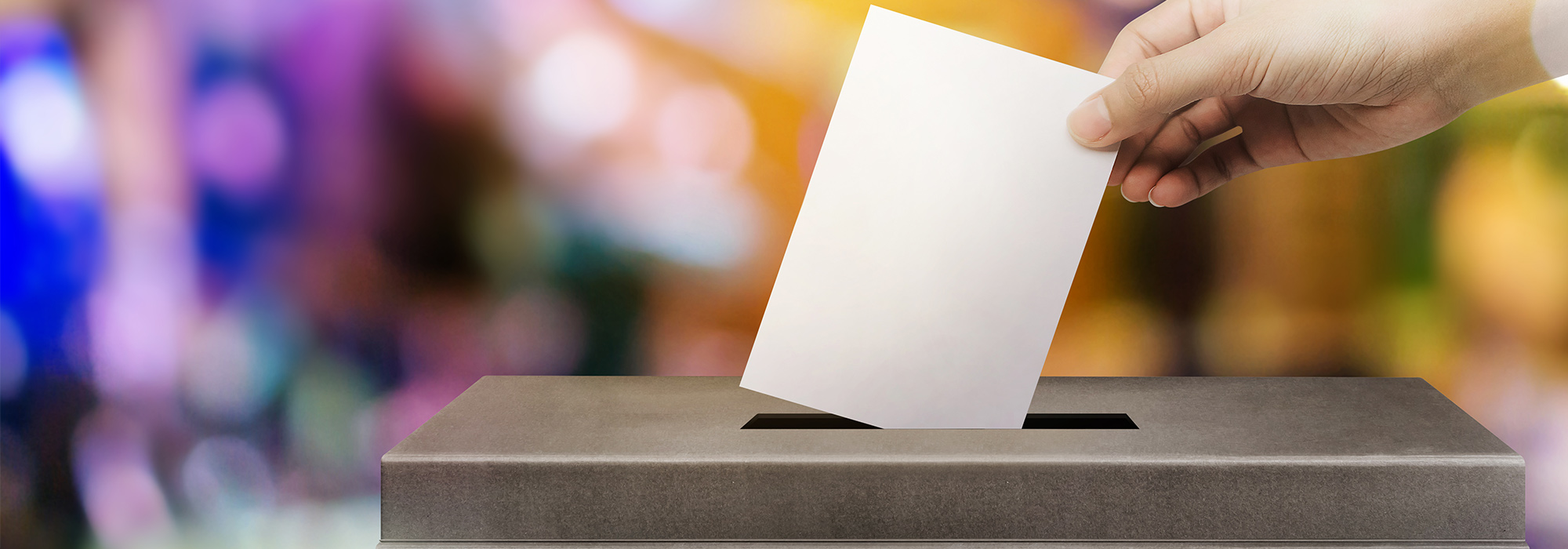
I welcome the opportunity presented by the Institute for Research on Public Policy to examine the issue of electoral reform—an issue of importance not only to elected legislators but to Canadians as well. It is an interesting debate and one in which a wide variety of perspectives has emerged. My thoughts encompass the views of the Progressive Conservative Party of Canada on the challenges and opportunities our country must address with respect to the way in which 301 men and women are elected to the House of Commons.
The question of changing Canada’s electoral system, whether that change is indeed needed and what type of system should be adopted and in what manner, is on the minds of many Canadians. While my first-hand experience with our electoral system began only four years ago in the 1997 election as a candidate and subsequently member of Parliament for the Progressive Conservative Party, my interest in the issue has continued to grow. In the fall of 1999 I was asked by my leader, the Rt. Hon. Joe Clark, to co-chair, along with a former colleague in the House of Commons, then-Reform MP Ian McClelland, a conference on citizen empowerment. While the purpose of this conference was to identify reforms to our governing institutions that could result in greater citizen empowerment and parliamentary accountability, a natural extension of the discussion that took place for two days in Edmonton was on the need for electoral reform.
I came away from that experience with the recognition that the democratic system is in serious trouble, but also, and perhaps more importantly, that there is a genuine desire among political parties of all stripes to work to achieve real change. Dr. Roger Gibbins of the Canada West Foundation threw down the gauntlet in his keynote speech, arguing that many of the electoral practices that were imported over one hundred years ago are in need of change. It is not surprising that a number of presenters at the conference called for a more proportional voting system.
Now here we are, almost two years later and another federal election behind us that re-elected a Liberal government, arguably by default, and the debate continues. The question remains as to what is the best vehicle for bringing about substantive reform to an electoral system that has systemic flaws. A debate of this scope must not only examine those obvious flaws—it must also acknowledge that the current system of constituency-based elections has merits that must be recognized.
We cannot overlook the sense of an identity and connection that a member of Parliament has with his or her region of the country—in many instances, that individual has grown up, worked, perhaps raised a family there and knows the issues of concern to the residents. For residents of a community the MP is someone who is accessible and whose job it is to be open to needs that are not being met.
The majority of MPs probably feel the same way about constituencies. They enjoy the direct relationship between themselves and their constituents and are genuinely interested in helping them in matters that fall under the jurisdiction of the federal government. While this is an obvious point it is one to keep in mind when we examine the possibility of adopting alternative systems of voting in Canada.
There is no question that there is much room for improvement in our current system of “first past the post.” I would not be the first to suggest that we must seriously look at some of the distortions that inevitably are the consequence of the first-past-the-post system. While I can only speak for my experience as a member of the Progressive Conservative Party, I would certainly have to agree with Dr. Gibbins in his address to the 1999 conference, in which he equated both my party and the then-Reform Party to survivors of an institutional train wreck, both having been derailed by the electoral system.
For the Progressive Conservative Party of Canada, the consequences of this system have never been clearer than in the last two federal election campaigns. For example, in the November 2001 election, the PC Party earned 12 per cent of the vote, but was rewarded with only four per cent of the seats. If we had obtained what we actually had earned in terms of voter support, we would be 36 members strong in this Parliament and life would be very different for the Progressive Conservative Party. An even more dramatic example of distortion was the outcome in 1993, when we received 17 per cent of the vote but elected only two members of Parliament. In that election, it took one million Canadians to elect a single PC voice in Parliament.
In the 1997 election, the Reform Party and the PCs each earned about 19 per cent of the vote, but while the Reform Party returned to the House of Commons with 60 seats and the status of Official Opposition Party, we elected just 20 MPs and finished fifth. Clearly, Reform voters were better rewarded than PC voters simply because they were better concentrated geographically, mainly in western Canada. I would argue that the 1997 result has had a dramatic impact on the fortunes of our two parties. The Official Opposition receives more government financing, more questions in question period, more committee memberships, more of just about everything. Resources are allocated according to the number of seats, not the number of votes. Political parties leverage those resources into greater political success at the next election. With the same number of votes in 1997, our system gave the then-Reform Party a considerably greater long-term political advantage. The PC Party had as many people support us, but has had to struggle much harder to turn that support into success.
At the risk of sounding too partisan, one must concede that past and present governments have shied away from altering an electoral system that has empowered them. It will take political courage and considerable vision to give effect to changing how we elect governments in this country.
The question then becomes one of options. The debate over electoral reform inevitably comes down to a choice between remaining with the current electoral system or moving to one embodying some form of proportional representation. Perhaps the answer could be found in a combination of the two.
The PC Party has expressed support for a system that would require each MP to be elected with at least 50 per cent of the vote. Voters would choose candidates in order of preference—1, 2, 3 and 4. Once the first place choices are counted, the candidate with the fewest votes drops out and his or her ballots are reallocated according to the second choices marked on those ballots. This system would deal with the phenomenon of vote splitting that has occurred in past elections—not only with the Tories and the Canadian Alliance splitting their vote base, but also other parties, such as the New Democratic Party and the Liberals.
A transferable vote system would also diminish strategic voting. Voters would no longer have to abandon their preferred candidate because he or she could not win. The PC Party believes— anecdotally at least—that many Ontario voters who wanted to vote for us in the last election, actually voted Liberal in order to block an Alliance victory. The reverse may also have been true: We lost votes because we were seen as a long shot. Voters thought we could not win. With a transferable vote, voters could have shown their support for our leader and our campaign and our issues, without risking victory of a candidate they strongly opposed. Could it be that the solution to our current dilemma may take the form of a genuine Canadian compromise—a constituency-based system with proportional representation to elect additional MPs from clusters of ridings using a transferable ballot?
One must also keep in mind that while a new voting system would perhaps be the best route to go, it is only part of the answer. Our democratic system of governing must also be put under the microscope. At the forefront of this parallel analysis is the need to ensure that Parliament becomes relevant once again. My leader, the Rt. Hon. Joe Clark has expressed his concerns both inside and outside the House of Commons over the need for Parliament to re-emerge as the central instrument of Canadian democracy. On many occasions, Mr. Clark has remarked on the irony that our system calls on our most able citizens to run for public office only to shut them out of any real influence once they take their seats in the House of Commons. Members of Parliament must be empowered if we are to improve the way in which we govern ourselves. For our part, the PC Party has long called for substantive changes to our parliamentary system to restore power and democratic accountability to the institution. Only with this type of reform can the role of members of Parliament be strengthened.
The PC Party has called for a number of specific initiatives that would restore both accountability and real power to Parliament, including more free votes in the House of Commons, and a return to appropriate control of spending by Parliament—there is negligible scrutiny of the Cabinet’s spending by members of the House of Commons. There are a variety of other mechanisms that would move us along the road to true Parliamentary reform, including the empowering of committees, the appointment of an independent ethics counselor who would report to Parliament, Senate reform and a parliamentary review of major appointments made by the Prime Minister.
In the case of both electoral and parliamentary reform, the underlying reality is that we need to consider, debate and discuss changes that would make our democracy more relevant and attractive to the diminishing number of Canadians who are voting. The astonishingly low voter turnout in the 2000 election should be a wake-up call for all to move this debate forward. This fact, if nothing else, tells us that to do nothing will only result in further apathy from the electorate.
As is often the case, there is an overriding need for leadership and initiative to bring about change in this area. Engaging and involving future generations should be a motivation for all elected officials. Improving our democratic practices through electoral reform is a worthwhile and fundamental exercise. By continuing to ignore this issue, Canada risks falling behind other countries. For all the attractive qualities and wonderful benefits of living in Canada, the deteriorating condition of our most democratic of institutions cannot be ignored.
Photo: Shutterstock







